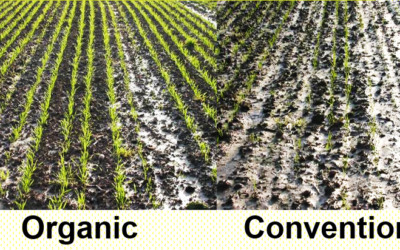The Clean Hand Obsession
From supermarkets to schoolyards, it is hard to travel more than ten feet without running into a bottle of hand sanitizer! Since the beginning of the COVID era, the usage of sanitizing products has expanded, particularly in areas that interface with children. Of concern are the many compounds in these products that are antimicrobials. Clearly, there is an obvious need for disinfection. However, the potential toxicity of the various compounds in these products on children has not been taken into account. And what about the effects of the antimicrobials on the sensitive microbiome?
What’s in Those Hand Sanitizers?
Quaternary ammonium compounds (QACs or quats), mostly utilized in the food industry, have been around since the 1930s. They have now crept into hand sanitizers in addition to personal care products, anti-static/softeners, and pesticides/algaecides. There are eight commonly found quats, and a giveaway is the preservative listed as ‘quaternium-15’ (which releases toxic formaldehyde). They’ve been shown to have antimicrobial activity against Staph aureus and E. coli. Their usage is so pervasive that their production has reached one million pounds/year (and higher amounts were produced during the pandemic).
Particularly problematic, these compounds are surfactants (detergents), sticky, and persistent. Studies have shown that the half-life of quats lasts one week to over 1¼ years, with degradation happening quicker in sunlight. The EPA created an ‘N’ list for approved sanitizers and disinfectants during COVID. Of the 392 products on the US EPA-approved list of sanitizers and disinfectants, 205 contain quats.
So What’s the Problem with Quats?
There are the known, reported problems with quat exposure such as asthma, inflammation of the skin and eye/mucous membrane injury (such as those reported in exposed workers). However, a more shocking revelation was brought to our attention in 2017 via the groundbreaking work of Dr. Terry Hrubec, DVM, PhD, where she made some remarkable discoveries previously unreported.A summary of Dr. Hrubec’s findings in her study of mice exposed to quats include:
- An increased rate of neurologic issues in the pups (neural tube defects)
- Decreased and delayed reproduction
- Increased maternal and pup loss
- A reduction in sperm count
- Two generations were required for these changes to resolve
The source of these findings were the quats used in the cleaning solution of the mice cages.
Quats and Kids
Dr. Hrubec also recognized other relationships that affect health as well. She discovered the link between quats and allergic disorders noted with an increase in inflammatory markers and decrease in cells (interleukins) that dampen inflammation.
In other words, there was a pro-inflammatory response. It is known that 80-90% of immune function resides in the gastrointestinal tract (GIT) modulated by the microbes. The health promoting effects of the microbiome (now even identified as an ‘organ’) on immunologic well-being has been clearly documented.
Considering the fact that children have a decreased ability to detoxify toxic substances, it is not a stretch to postulate that long-lasting antimicrobial toxicants could lead to residual effects on their microbes, thus producing the changes reported in immune function by Dr. Hrubec.
Until this data is produced, the Precautionary Principle needs to be swung back to the side of our children.
Of Mice and Men?
The curious reader may question the status of quats in humans since Dr. Hrubec’s work focused on mice. She also decided to do a human study and examined the blood of 43 college students looking for quat concentrations. She found the following:
- 80% of the participants had by-products of quats in their blood
- The students had decreased function of their mitochondria
- The students had alterations in cholesterol synthesis
With over five thousand quat-containing products now on the market, they are certainly hard to avoid even for those with a trained eye. Industry reported that they don’t accumulate in human tissue. However, Dr. Hrubec found that they did. While the work of Dr. Hrubec focused on a specific type of neurologic issue seen in children, the likelihood of seeing other neurologic issues is high. So, the question is have we seen increased rates of neurologic diseases? The rising rates of neurocognitive, neurobehavioral and neurodegenerative diseases says we have.
“…It was the worst of times…” for Children
Reporting in the news has now taken on a certain Dickens quality, famously quoted in A Tale of Two Cities. Teachers in the UK demanded that children, “…be sprayed front and back with disinfectant at the school gates – as they reacted with alarm to the Prime Minister’s announcement (regarding the reopening of school during the pandemic)…”. Is that the best that we can do?
There are safer choices for disinfection for everyone including:
- Soap and water (Imagine!)
- Hydrogen peroxide
- Thymol
- Lactic acid
- Citric acid
- Caprylic acid
- Some essential oils (i.e., pine oil)
Alcohol preparations, in themselves, are non-toxic, however can cause increased absorption of other toxic substances such as BPAs (endocrine disrupting compounds).
An often neglected and overlooked aspect of environmental toxicity is to be found in our waste; in particular, our wastewater. Wastewater treatment plants were not designed for quat removal. Biosludge (wastewater remnants) is being used as fertilizer across the US, thus further exposing our kids to a wide array of quats and other toxicants. These issues shine a light on the need for environmental medical education to advise public policy and put into place legislation that supports the health of our most vulnerable. That is our job.


